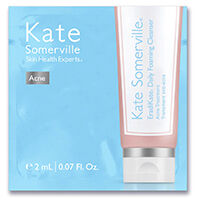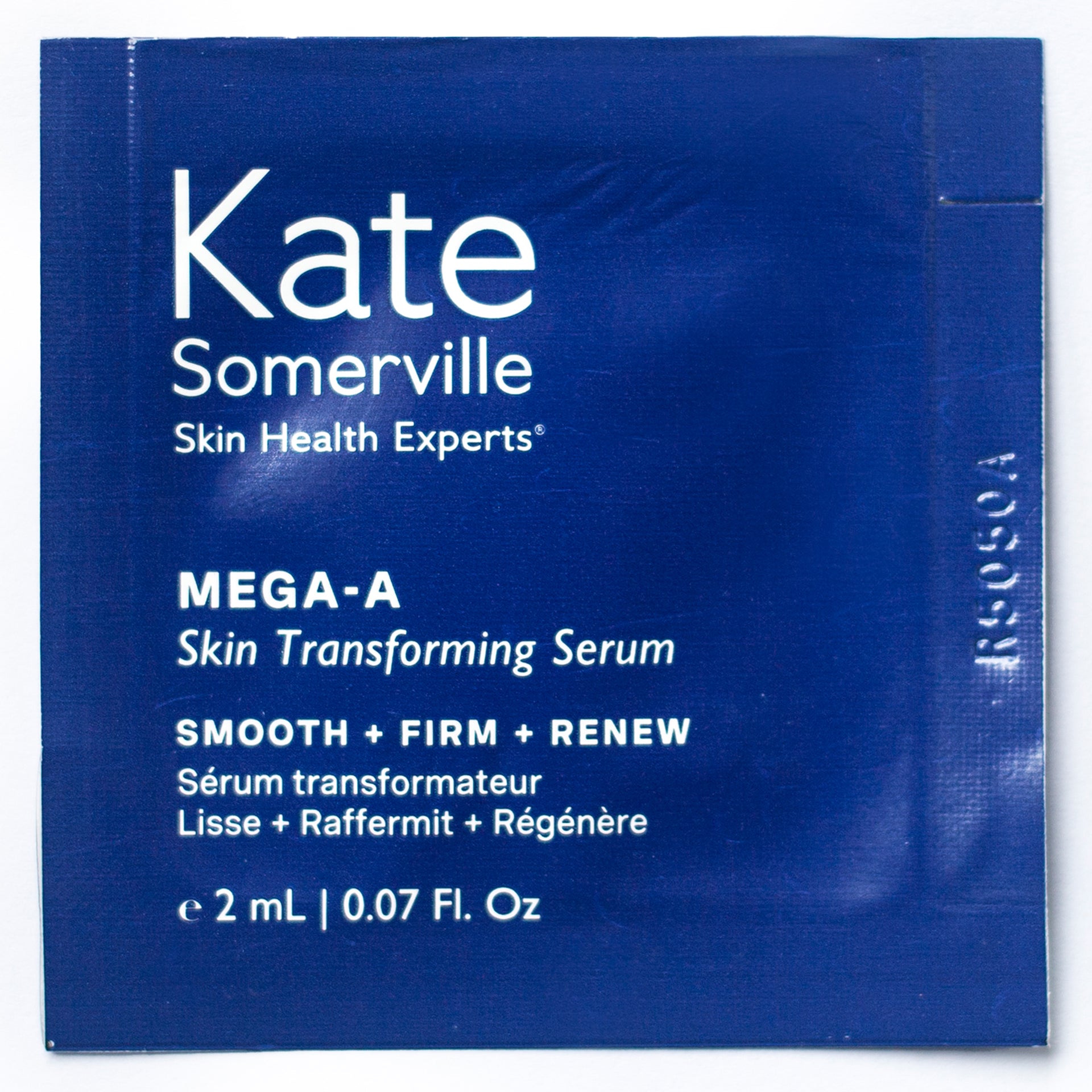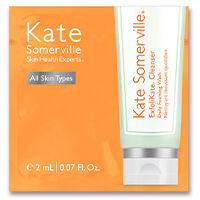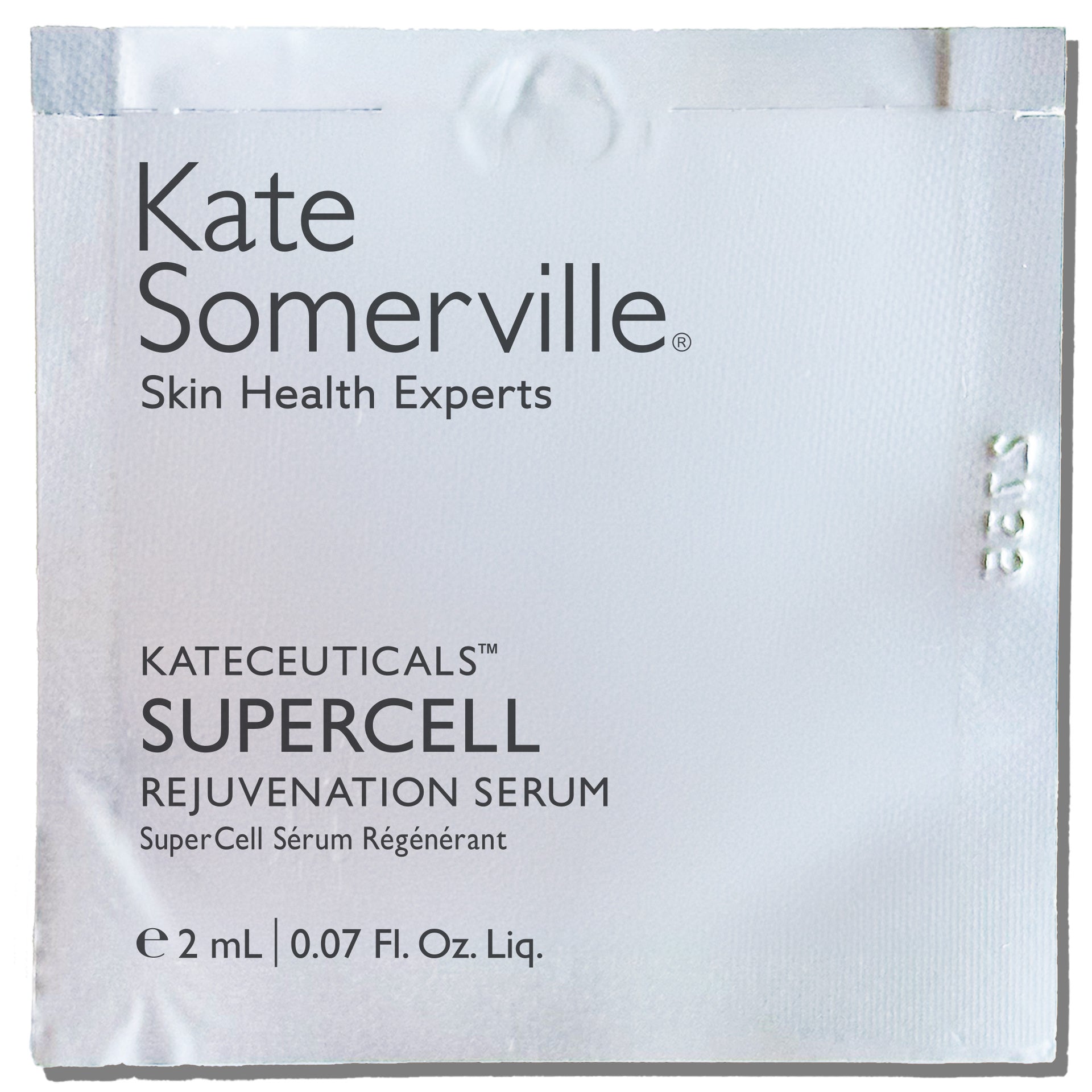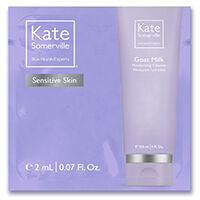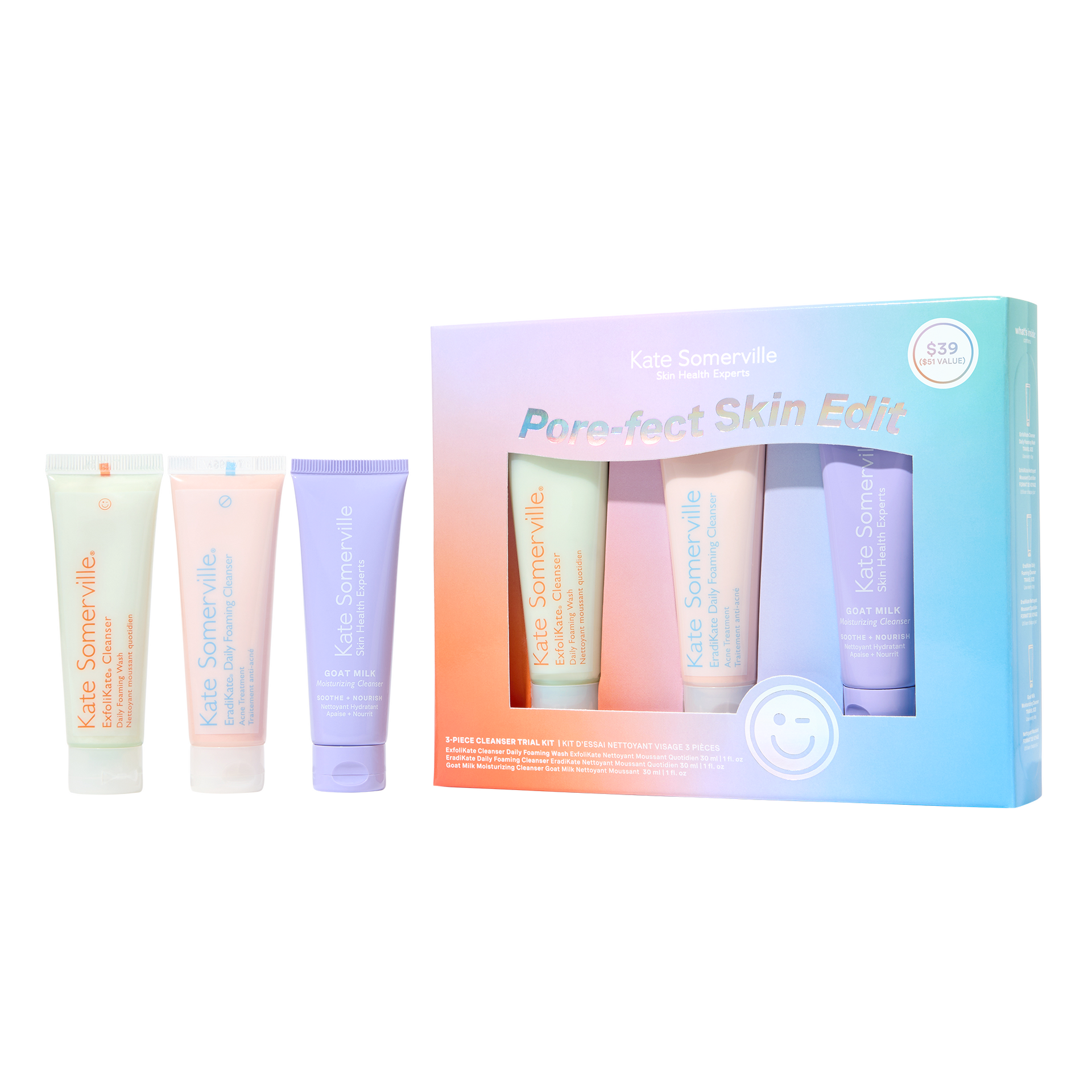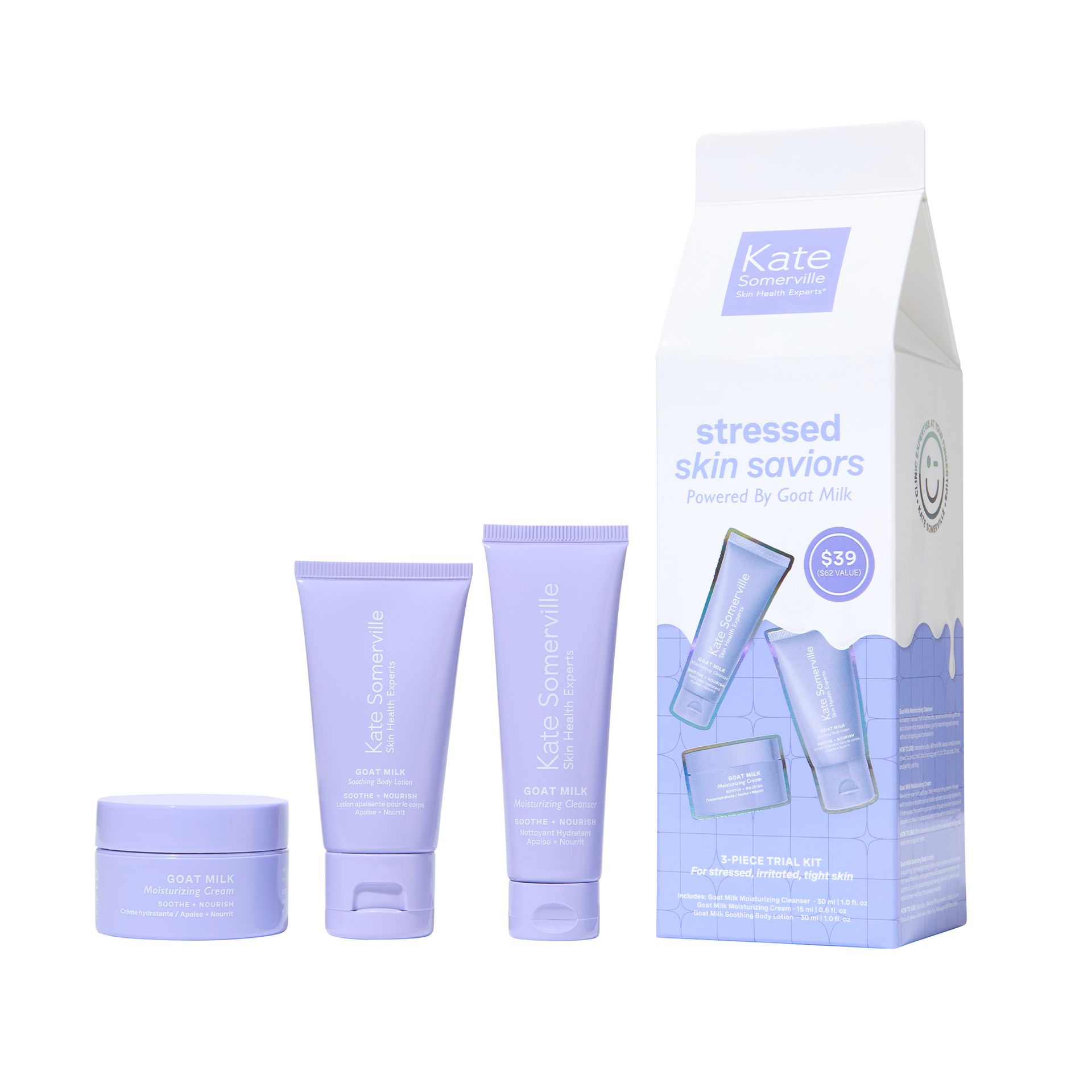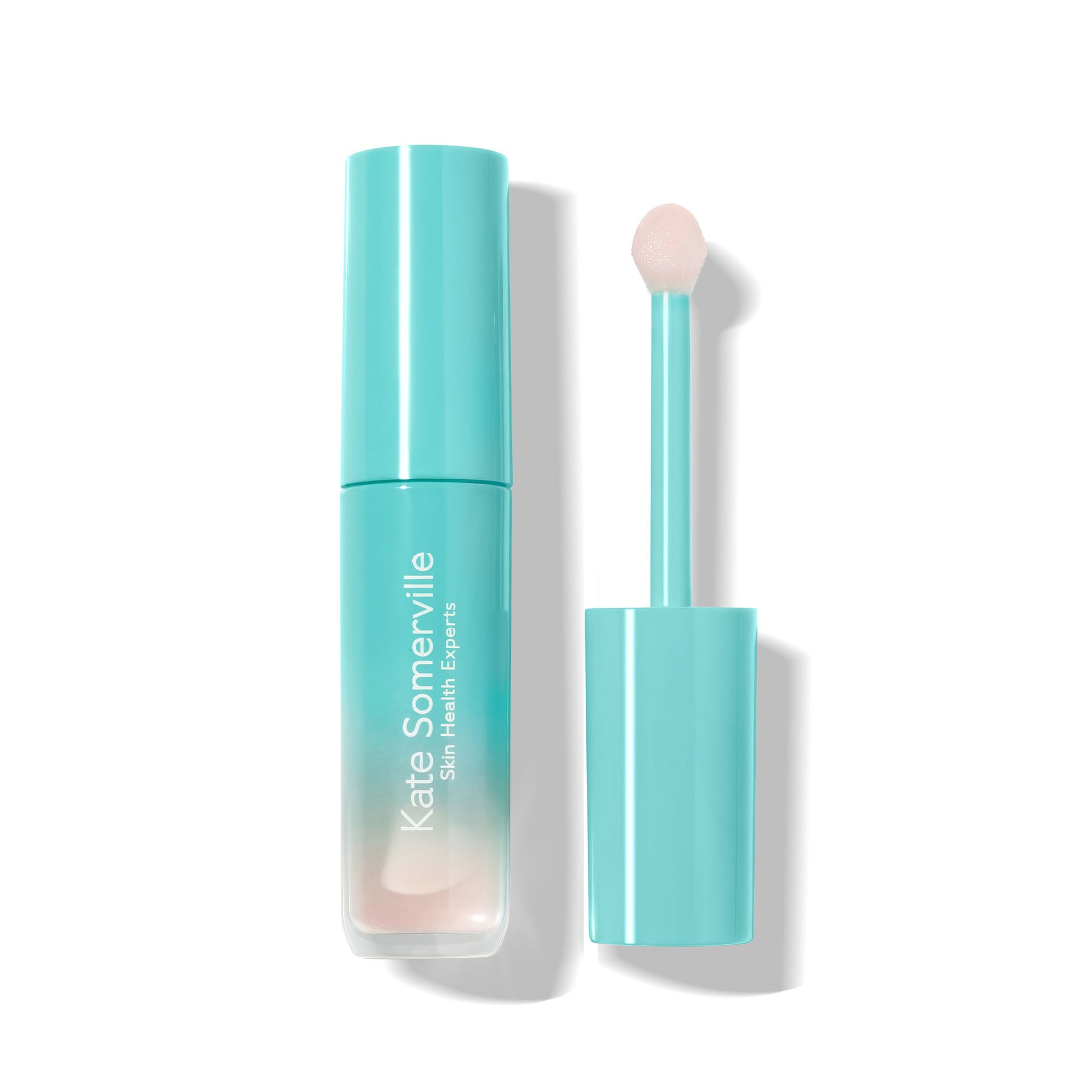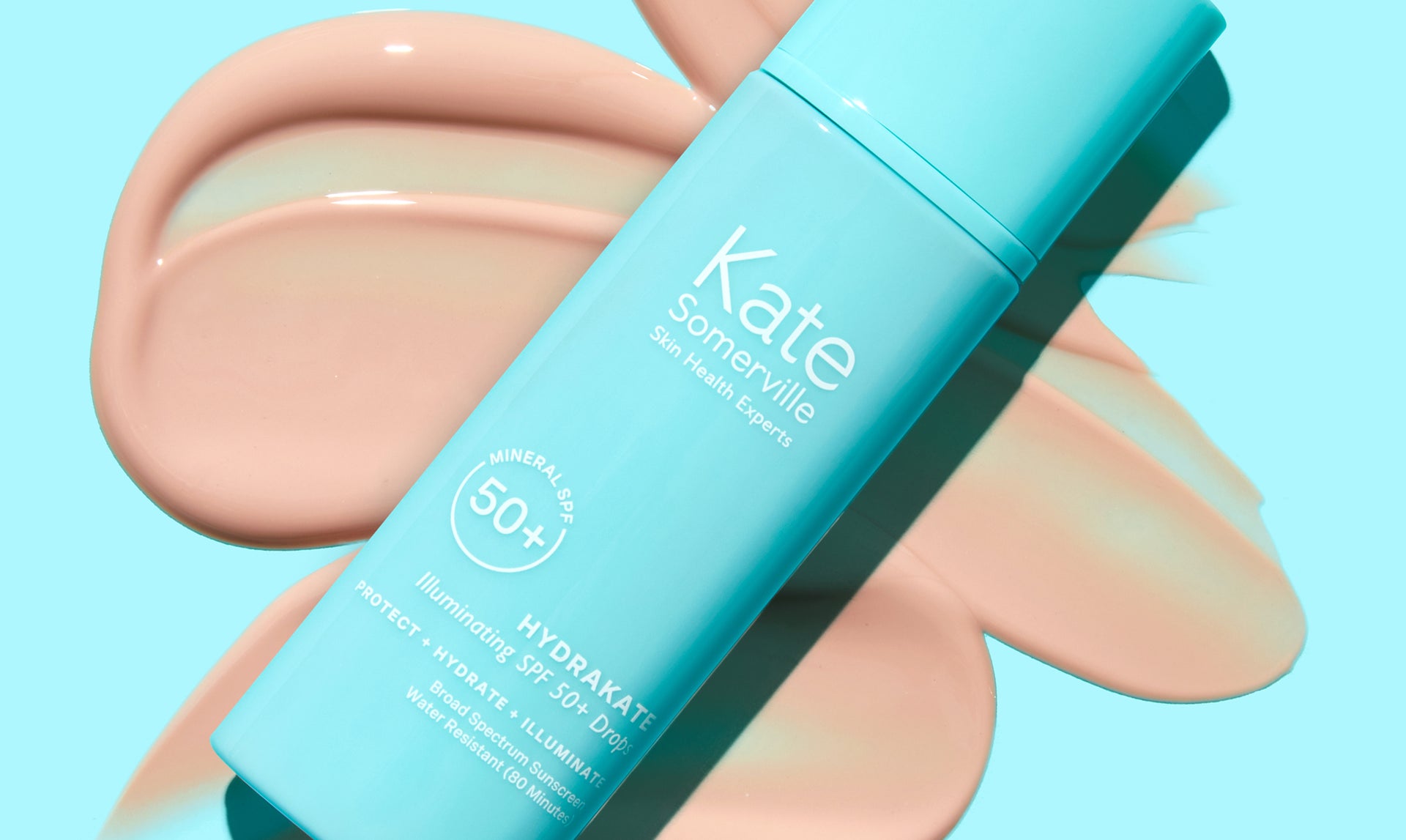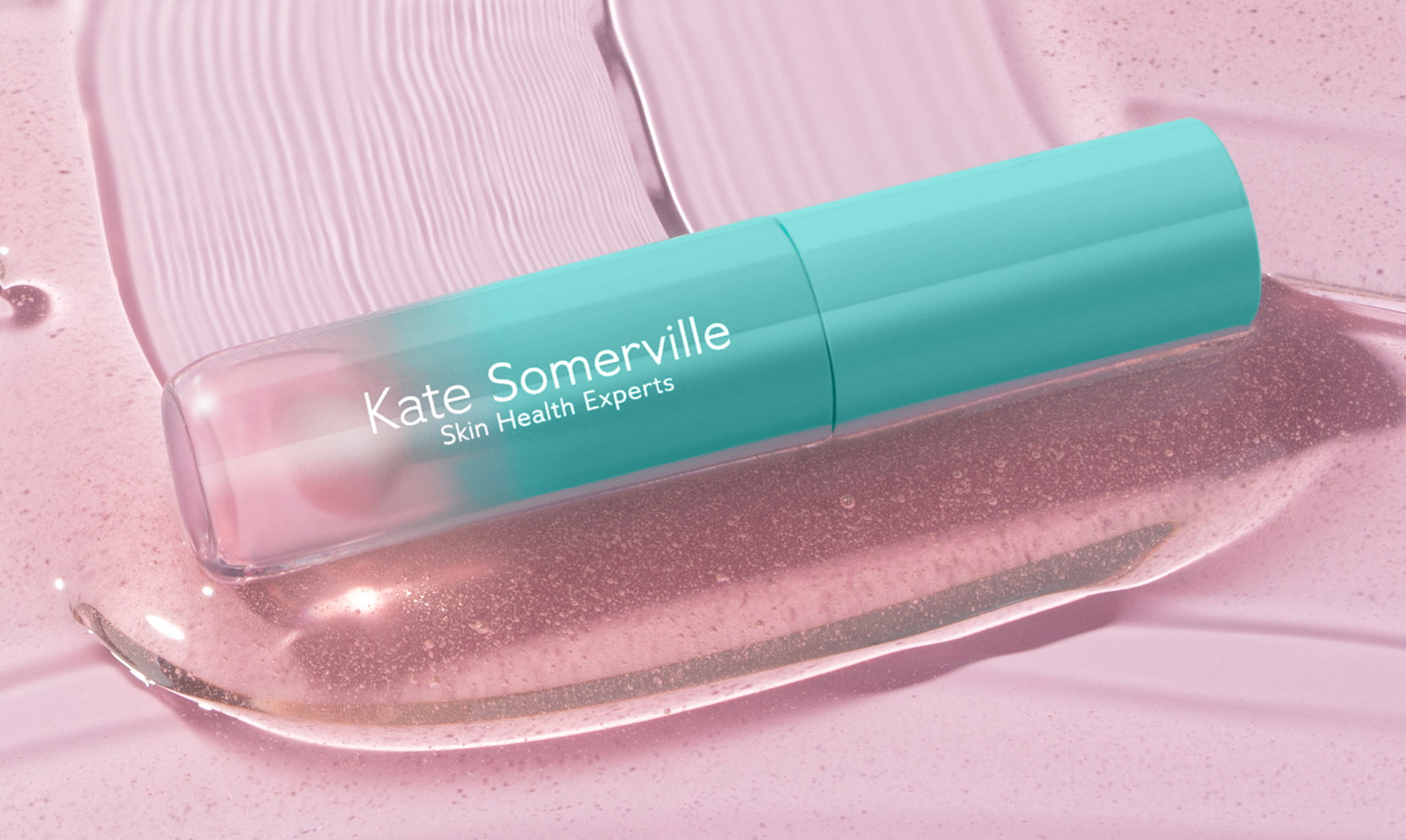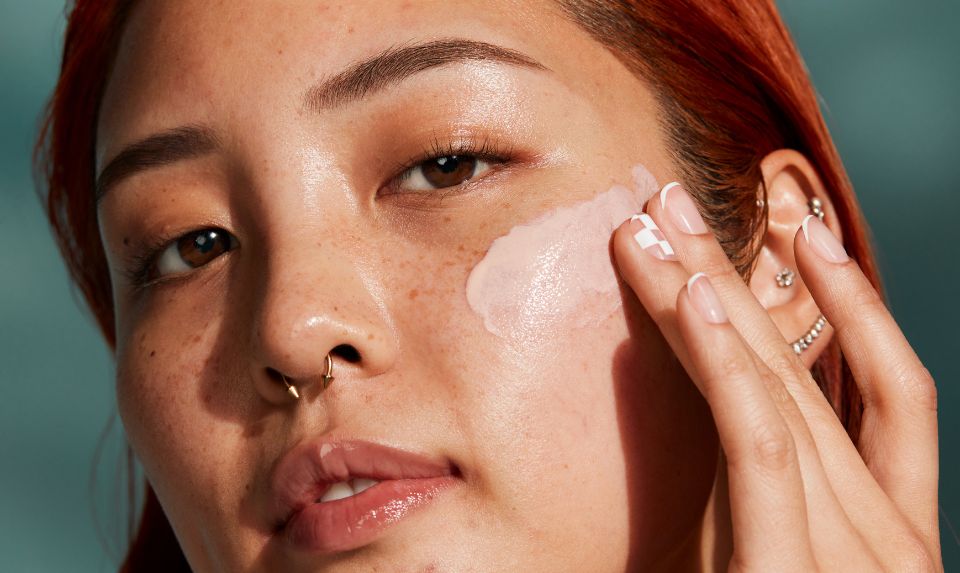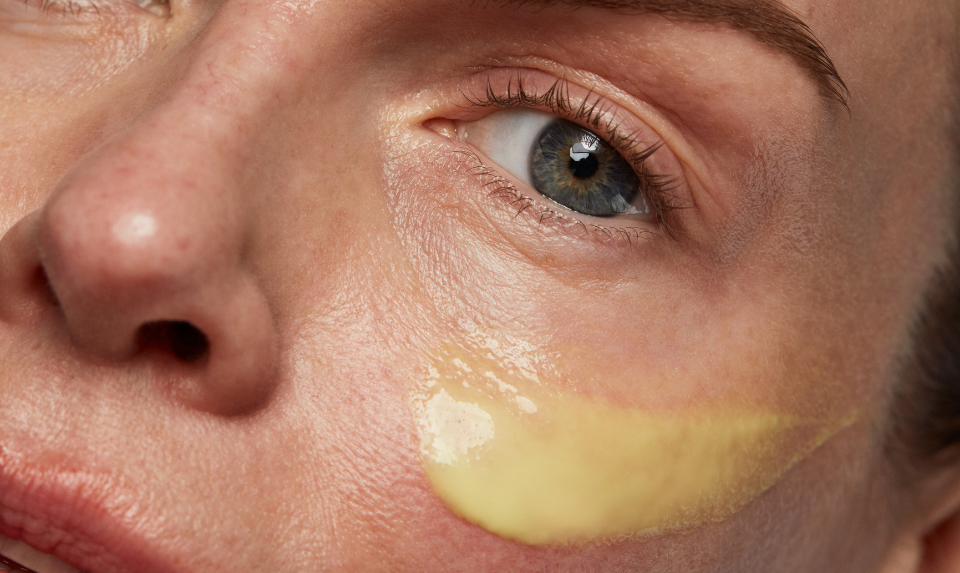Sunscreen isn't just another skincare product. It’s a powerful shield that protects your skin from the damaging effects of the sun's rays. The sun emits ultraviolet (UV) radiation, consisting of UVA and UVB rays, which can lead to serious consequences for your skin. When choosing sun protection, it can be difficult to determine which type is best for you. Let Kate Somerville help you explore mineral vs chemical sunscreen and each sunscreen's distinguishing benefits.
Understanding Sunscreen Types
When it comes to protecting your skin from the sun, understanding the different types of sunscreen available can determine how successfully you can bask in the sun’s rays sunburn-free. Broadly speaking, sunscreens fall into two categories: mineral and chemical, each with distinct characteristics and sunscreen benefits.
Mineral sunscreens act as a physical barrier on the surface of your skin, reflecting and scattering the sunlight, while chemical sunscreens absorb UV radiation and convert it into heat, which is then dissipated from the skin. The choice between mineral and chemical sunscreens often depends on your skin type, concerns, and personal preference for texture and application. Our aim is to demystify these options, helping you make an informed decision on which sunscreen is best suited to your skin's needs and your lifestyle.
What is Mineral Sunscreen?
Mineral sunscreen, often referred to as physical sunscreen, is a type of sun protection that contains physical UV blockers such as zinc oxide or titanium dioxide. Zinc oxide and titanium dioxide in mineral SPF work by sitting on top of the skin to reflect, scatter, and block harmful UV radiation. Mineral sunscreens are also broad spectrum, meaning they protect against both UVA and UVB rays. Additionally, some mineral sunscreens like the Daily Deflector™ Mineral Face Sunscreen go beyond the basics to also help protect from blue light, which can cause wrinkles & hyperpigmentation.
For those seeking more from their sun protection, consider SPF drops like the HydraKate Illuminating SPF 50+ Drops. This skincare-forward formula not only promises elevated skin benefits but also delivers protection that hydrates, illuminates, and refines your skin texture. Its lightweight mineral pigments provide a universal tint that evens out skin tone and diffuses imperfections, beautifully enhancing your natural radiance alongside cleansers and toners. These sheer mineral pigments are specially designed to counteract the bluish-white hue of zinc oxide in sunscreen, also found in ectoin and zinc oxide products. These pigments ensure a flawless, natural appearance and keep your skin beautifully protected and hydrated, safeguarding your long-term skin health.
Do you find yourself wondering, “Does sunscreen help with acne?” Mineral sun protection is known to be less irritating to sensitive skin and does not contain harmful chemicals. Since they're less likely to cause irritation or allergic reactions, they're best for those prone to acne or skin irritation.
What is Chemical Sunscreen?
Chemical sunscreen refers to a type that uses a combination of chemical compounds, such as avobenzone, octinoxate, and oxybenzone. These chemicals interact with UV rays and transform them into less harmful forms of energy, like heat, which is then released from the skin. They work by penetrating the skin and absorbing UV radiation before it can cause damage. However, some people may be sensitive to these chemical ingredients and experience irritation or other negative effects.
Chemical sunscreens offer different benefits that make them popular:
- Lightweight and Cosmetically Elegant: Chemical sunscreens tend to have a lighter texture and can be more easily incorporated into skincare and makeup routines. They often leave a more transparent finish on the skin, making them popular for daily wear as you reapply sunscreen over makeup.
- Less White Cast: One common concern with mineral sunscreens is the potential for a white cast on the skin, especially for those with darker skin tones. Chemical sunscreens tend to be more transparent, which blends seamlessly into the skin without leaving a white cast, just like our serums and treatments. This makes them ideal for an individual with a darker skin tone.
- Faster Activation: Their ability to absorb UV radiation and convert it into heat allows for faster activation, providing reliable sun protection within 20 minutes of application.
- Broad Spectrum Protection: Chemical sunscreens are also broad spectrum, meaning they offer protection against both UVA and UVB rays.
Comparing Mineral and Chemical Sunscreens
Just like determining which ExfoliKate product is best for you, the choice between mineral and chemical sunscreens depends on your personal preferences, skin type, and concerns. Both types are effective in protecting against UV radiation, but each has its unique characteristics. Comparing the two is always the best way to determine the right fit for you.
- Ingredients and Formulation: The primary difference between mineral and chemical sunscreens lies in their active ingredients. Mineral sunscreens use physical blockers while chemical sunscreens rely on organic compounds to absorb UV radiation.
- Effectiveness Against Harmful UV Rays: Both types offer protection against UVA and UVB rays, but mineral sunscreens provide immediate protection upon application, while chemical sunscreens require about 20 minutes to become effective.
- Environmental Impact and Reef-Safe Options: Is mineral sunscreen better? It’s up to you to decide, but it is better for the environment. Mineral sunscreens are generally considered more environmentally friendly, as their ingredients are less likely to harm marine life and coral reefs. Look for "reef-safe" labels on mineral sunscreens to ensure their eco-friendly properties.
- Suitability for Sensitive and Acne-Prone Skin: Mineral sunscreens are often recommended for individuals with sensitive or acne-prone skin due to their less irritating nature. However, some chemical sunscreens are formulated to be non-comedogenic, making these products excellent options as skincare for sensitive skin.
Understanding Sun Protection Factor (SPF)
SPF, or Sun Protection Factor, plays a crucial role when choosing a sunscreen. SPF measures the level of protection a sunscreen provides against UVB rays, the type of radiation responsible for sunburn. The higher the SPF value, the greater the protection. However, it's important to remember that SPF only indicates protection against UVB rays, not UVA rays.
Broad spectrum sunscreen offers protection against both UVB rays and UVA rays, which penetrate deep into the skin and cause premature aging. By using a broad spectrum sunscreen, you shield your skin from the harmful effects of both types of radiation, reducing the risk of sunburn, skin cancer, and skin aging.
Understanding SPF values is critical for effective sun protection. For everyday use, dermatologists typically recommend using a sunscreen with at least SPF 30, which blocks about 97% of UVB rays. Higher SPF levels, such as SPF 50 or 100, block slightly more UVB radiation, but no sunscreen can block 100% of UV rays. It’s also important to apply sunscreen generously and reapply every two hours, or more often if you are swimming or sweating, to maintain effective protection.
The formulation of sunscreen also matters. Water-resistant formulas are perfect for days when you are active outdoors or in the water. These sunscreens are designed to maintain their SPF protection for a certain period of time while you are wet or sweating, typically either 40 or 80 minutes, as indicated on the label. Remember, water-resistant does not mean waterproof, and reapplication is key to continuous sun protection.
In addition to SPF and broad-spectrum coverage, choosing a sunscreen that fits your skin type and lifestyle is important. For those with acne-prone skin, mineral sunscreens containing zinc oxide or titanium dioxide are typically better tolerated as they are less likely to cause skin irritation. For active individuals or those who wear makeup daily, a lightweight, non-comedogenic sunscreen might be preferable to prevent clogged pores and breakouts.
Sunscreens also now come with added skincare benefits such as antioxidants which help fight free radicals, hydrating ingredients like hyaluronic acid to keep skin supple, and niacinamide to improve skin tone and texture. These enhanced formulas not only protect from the sun but also nourish and improve the health of your skin over time.
By selecting the right type of sunscreen and using it correctly, you can enjoy the sun safely while minimizing the risk of long-term skin damage. Always look for sunscreens that suit your skin type, provide sufficient SPF, and offer broad-spectrum protection to ensure that you are effectively shielded from both UVA and UVB rays.
How to Choose the Best Sunscreen
Choosing the right sunscreen is essential in safeguarding your skin from harmful UV radiation and preventing skin damage. Whether you opt for a mineral or chemical sunscreen, prioritize broad-spectrum protection and reapply regularly for maximum effectiveness. Always consider your skin type and preferences when making your choice. You also have the option of an SPF setting spray, like the UncompliKated SPF 50 Setting Spray, that allows you to access maximum sun protection even after applying makeup.
By selecting the best sunscreen for your needs, you can ensure you're keeping your skin healthy and protected. And if you're wondering how much sunscreen to use on your face, fret not! We've got you covered with a comprehensive guide that will help you determine and apply the perfect amount for optimal sun protection. So, go ahead and enjoy the sun responsibly with confidence in your sunscreen choice!



